What are the Best Perennial Vegetables You Can Grow?
Finding the best perennial vegetables to grow was not as easy as I thought. Some require extensive care, others are prone to pests, and lots are just not simple & quick enough to grow.
That’s why I created a list of the 10 BEST Perennial Vegetables You Can Grow!
This ultimate guide will give you the best perennial vegetables to grow, why you should grow them, and even how to grow them.
Read THIS Before Growing Perennial Vegetables
Knowing what hardiness zone you live in is critical to understanding the best perennial vegetables that can be grown.
It can be the difference between your vegetables thriving and providing a bountiful yield or producing nothing and maybe even dying.
If you want to know what hardiness zone you live in review the map below:
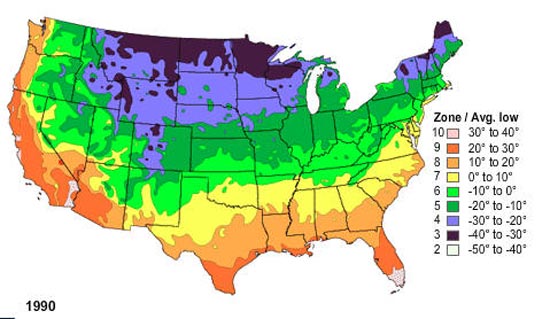
10 Best Perennial Vegetables to Grow
#1. Chives
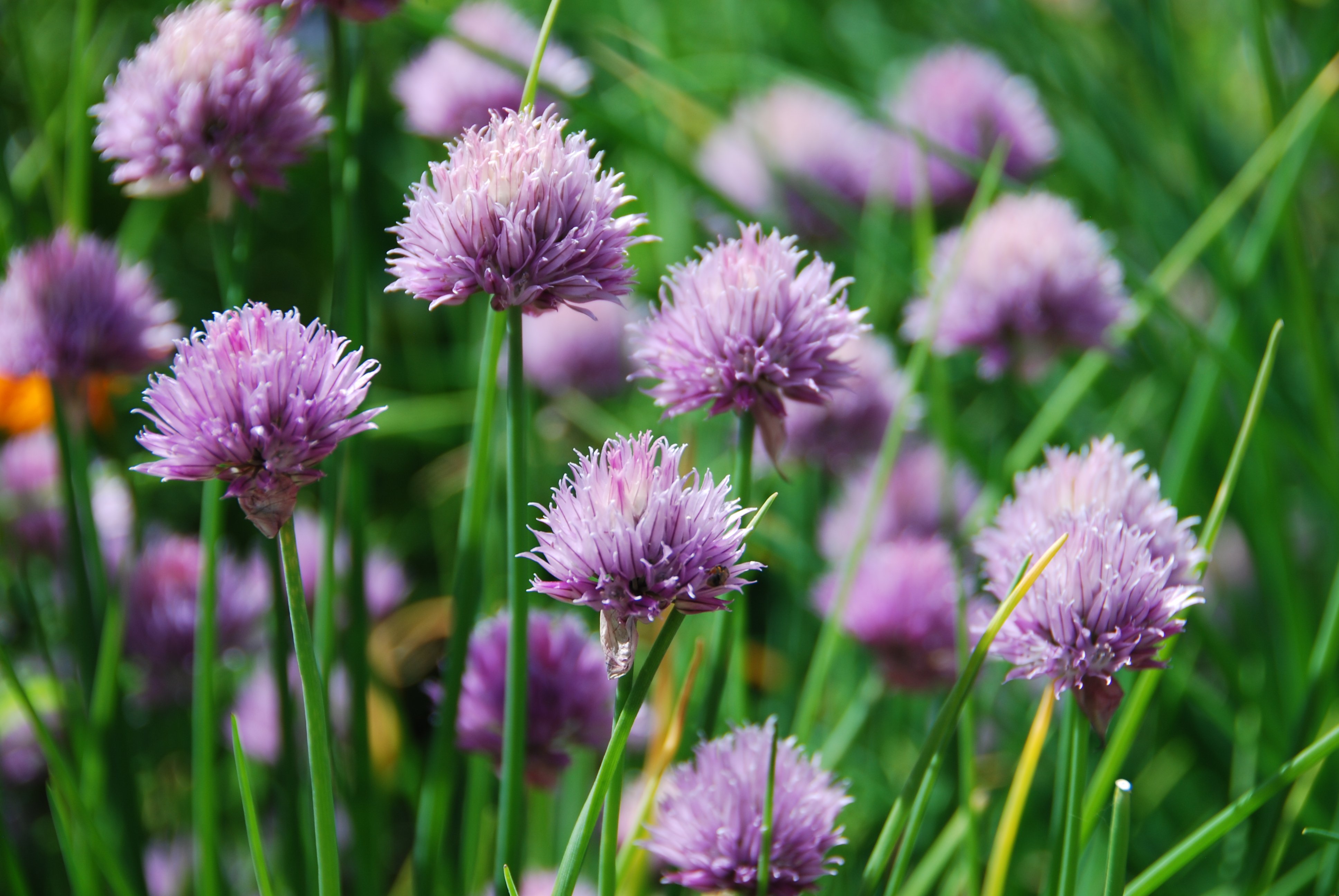
Popular Varieties: Common, Siberian
Why Grow Chives?
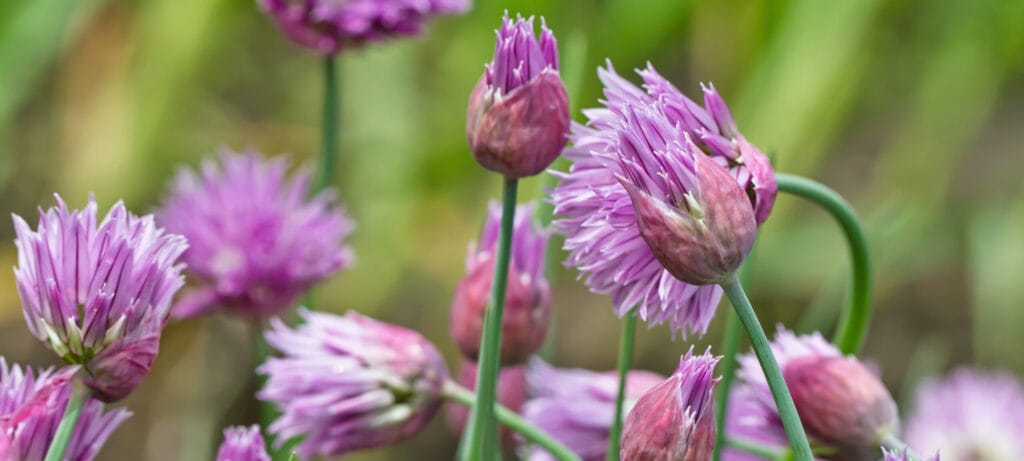
Cold Hardy:
- Chives thrive in cold spring and cooler fall months. Unlike other vegetables, chives can grow anywhere at almost any time. Like many other perennial vegetables, chives can survive in very cold temperatures.
Easy to Grow:
- Chives may be the easiest vegetable to grow. You do not need to fertilize it, don’t need to water it, can be planted in any soil, and needs very little pruning if any.
Perfect for ANY Property:
- Chives are perfect for any gardener’s yard meaning it’s perfect for a small or large garden.
Heavy Harvest:
- Out of all the perennial vegetables on this list, chives have one of the heaviest harvests. In summer and early fall you’ll pick more chives than you’ll know what to do with.
THESE Could Harm Your Chives
Pests:
- Deer, Rabbits, & Squirrels LOVE perennial vegetables like chives. If left unprotected these pests will eat your vegetable before it can even fully grow.
Insects:
- Another factor that can affect your chives is insects. There are numerous types of insects that can visit, affect, and destroy your chives depending on where you live.
Disease:
- While it doesn’t happen often, the disease can affect chives. While minor most of the time, different types of diseas can affect chives ability to come up every year.
Additional Resources
Learn How To Grow Chives HERE
#2. Asparagus
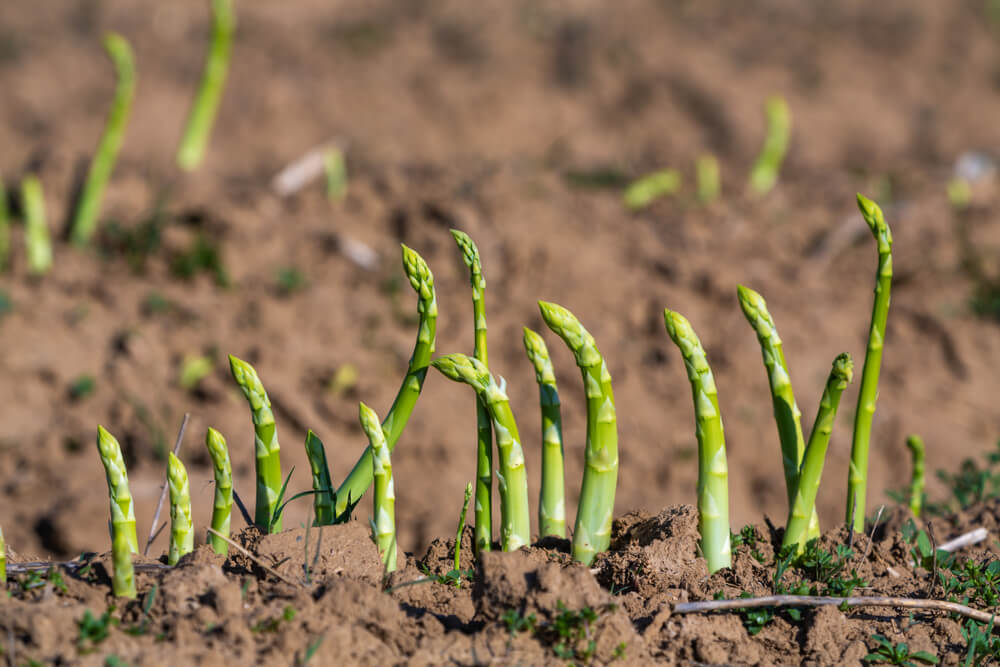
Popular Varieties: White, Green, & Bath
Why Grow Asparagus?

Thrives in Droughts:
- Unlike other vegetables, Asparagus does not require a lot of water to grow, flower, and bloom into a crop that can be harvested throughout summer. This is great for the unusual dry summers and even wet ones.
Great for Perennial Gardens:
- If you want a vegetable that grows every year with little to no maintenance then asparagus is perfect for you. The best part is this can be grown among other vegetables in a small garden.
THESE Could Harm Your Asparagus
Insects:
- Asparagus is one of the few vegetables that require constant insect control. Insects can quickly destroy your asparagus when it grows and if you leave it in the ground too long.
Pests/Animals:
- Because Asparagus is one of the first perennial vegetables to grow up from the ground in late spring/early summer they are prone to being eaten more by pests/animals.
Additional Resources
The biggest tip I have when growing Asparagus in Hardiness Zone 9 is to plant them in an area of your garden you plan on dedicating to them every year. Not only this, but it will be beneficial to keep them among other animal-repellent plants to properly protect them.
#3. Kale
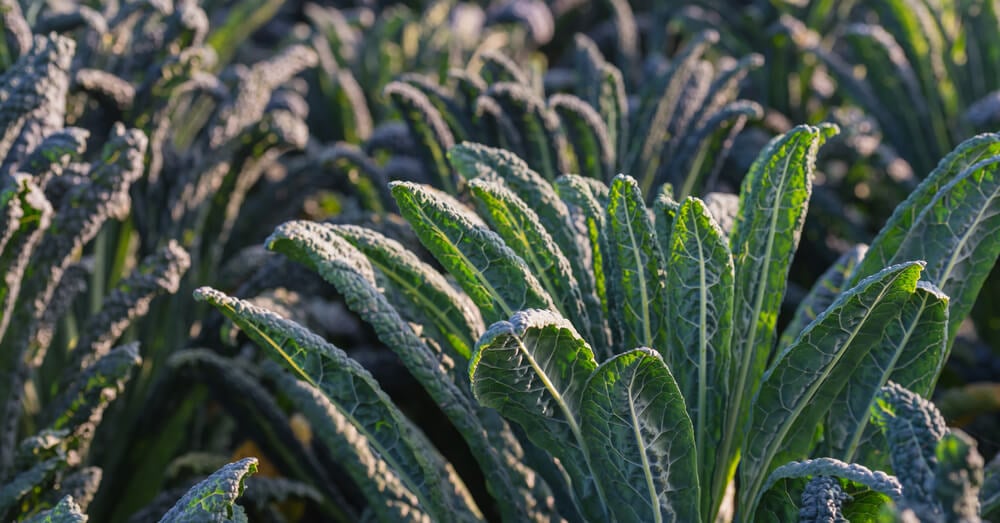
Popular Varieties: Curly, Lacinato, Red Russian, Ornamental
Why Grow Kale?
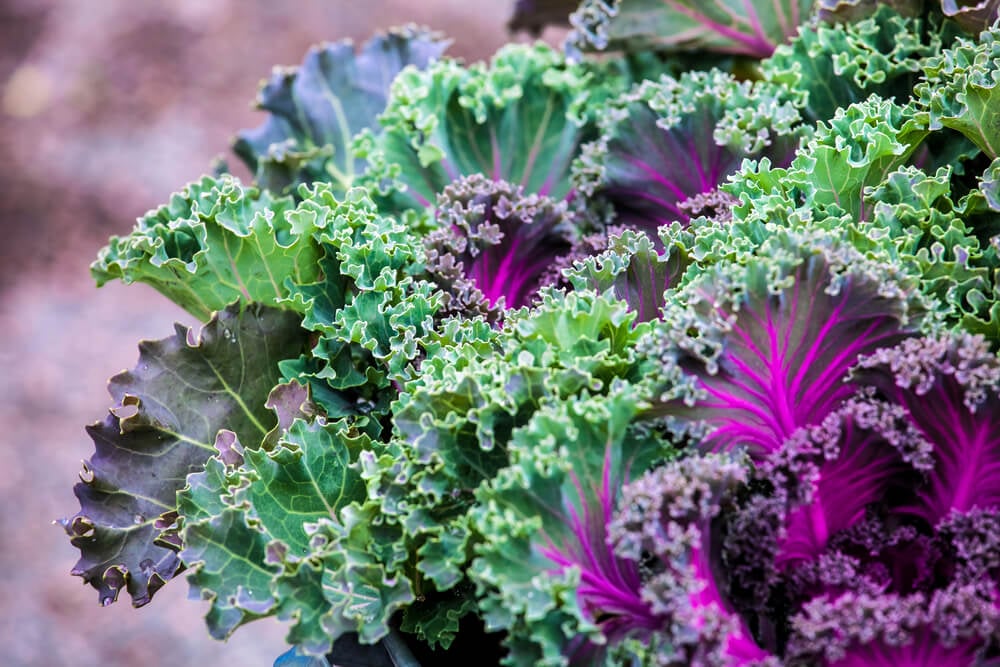
Cold Hardy:
- Kale is the hardiest vegetable when it comes to cold. Unlike any other vegetable on this list, Kale can be grown throughout the entire year.
Ornamental:
- Kale is the only vegetable on this list that can also be considered an ornamental plant. This means it can add color, features, and beauty to any type of garden.
Perfect for Pots:
- If there is any vegetable that can be grown in gardening pots, it’s Kale. This is one of the most adaptive vegetables, making it perfect for beginner gardeners.
THESE Could Harm Your Kale
Aphids:
- Like many other vegetables, aphids are one insect you don’t want. Aphids are especially prevalent and can stunt or kill your kale.
Extreme Heat:
- Like lettuce, Kale does not tolerate extreme heat. After just a week in temperatures over 90 degrees, Fahrenheit and direct sunlight Kale can flower and become inedible.
Additional Resources
Learn How To Grow Kale HERE
#4. Garlic
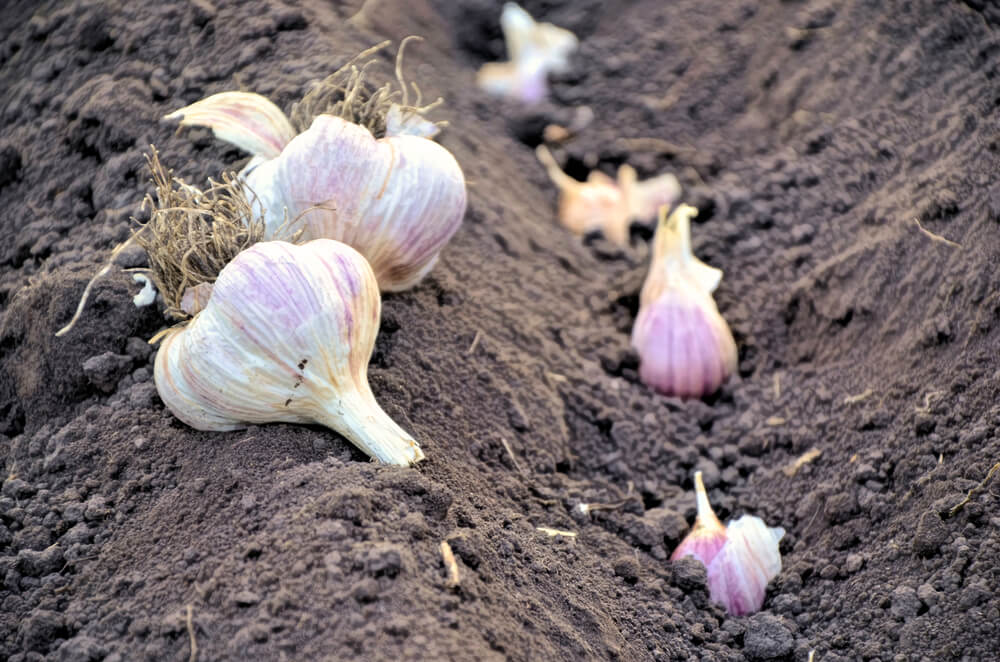
Popular Varieties: Solo, Aglio, Snow Mountain
Why Grow Garlic?
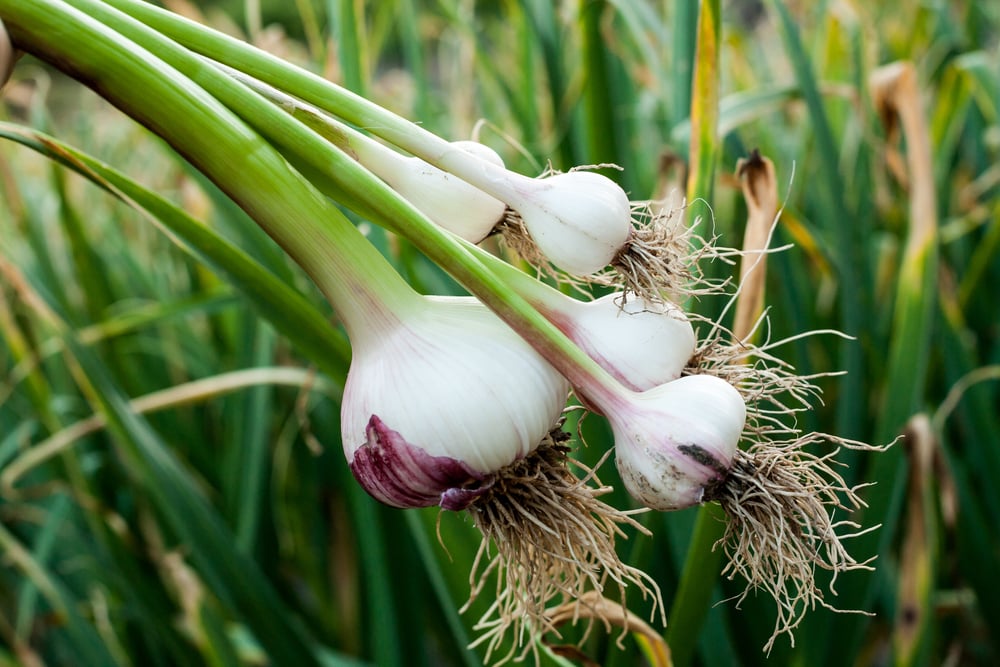
Cold Hardy:
- Garlic thrives in cold spring and cooler fall months. Unlike other perennials, garlic can grow even when there is snow or frost late into the spring.
Fast Growing:
- Garlic may be one of the quickest vegetables to grow. With just a little dir, mulch, and fertilizer you can expect your garlic can grow up to 3 feet tall in year one and this will happen every single year.
THESE Could Harm Your Garlic
Insects:
- Garlic is prone to diseases. While pests have been known to frequent garlic from time to time, expect different types of insects including slugs to visit, feed, and sometimes even kill garlic underground.
Additional Resources
Did you know that garlic is not only perennial but can be dried and stored for almost a year in a cold cellar or even your garage.
#5. Arugula
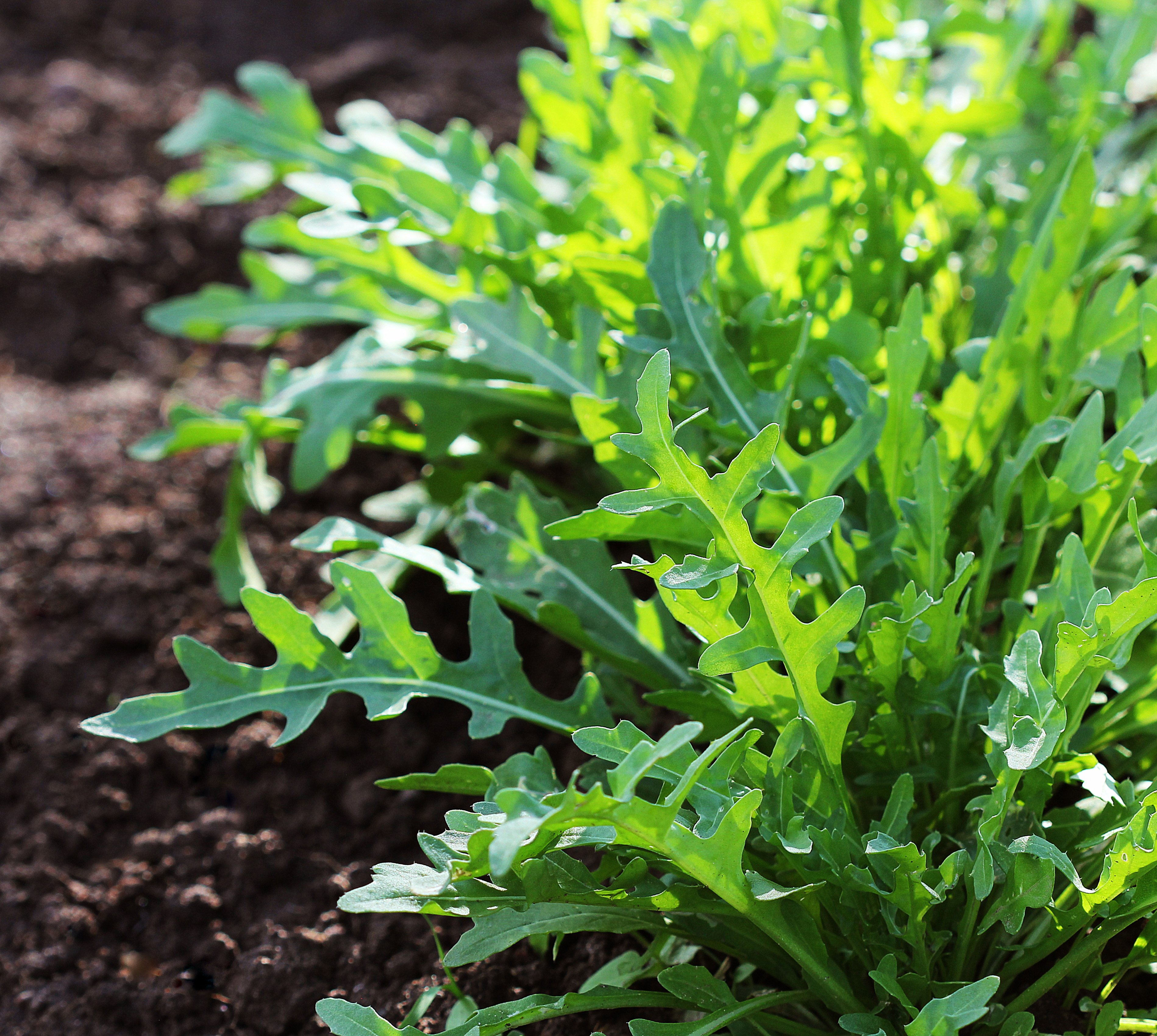
Popular Varieties: Astro, Wild, Rocket
Why Grow Arugula?
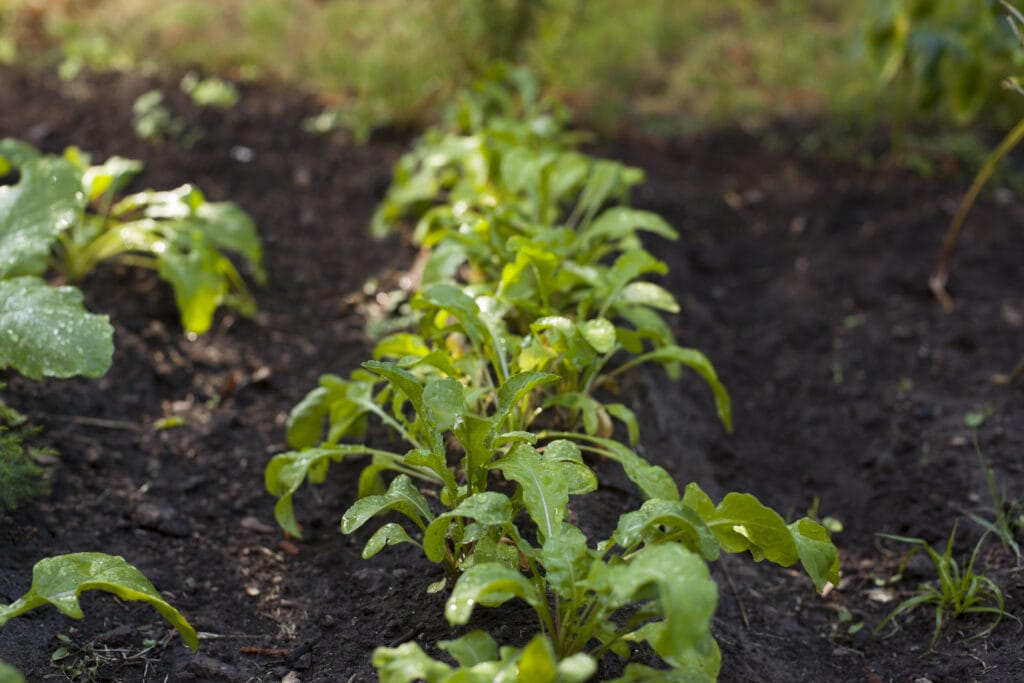
Cold:
- Did you know that arugula doesn’t just grow in cold weather but thrives? You can both grow and harvest arugula even when there is snow on the ground.
Perfect for Indoors & Outdoors:
- Most perennial vegetables on this list are tough to grow indoors and outdoors. Arugula can thrive outside, but most gardeners will grow them in a pot where they leave them outside during the summer months and bring them inside after the first frost of the year.
Easy to Grow:
- Once you plant your arugula in a gardening pot there is nothing else you need to do. You don’t have to worry about insects or disease, only need to water it once a week, and you even don’t have to worry about pruning it for arugula to grow.
THESE Could Harm Your Arugula
Pests and Insects:
- If you ever notice holes in arugula then you’ve experienced either pests or insects. Both rabbits, chipmunks, squirrels, and different types of insects are known to eat arugula from time to time, especially when they first start growing.
Drought:
- If you keep your arugula in pots or in a garden droughts will stunt and kill your plant. This is because arugula needs water and shade to strive. Too much sun or drought will dry it out and die.
Additional Resources
Learn How to Grow Arugula HERE.
#6. Rhubarb
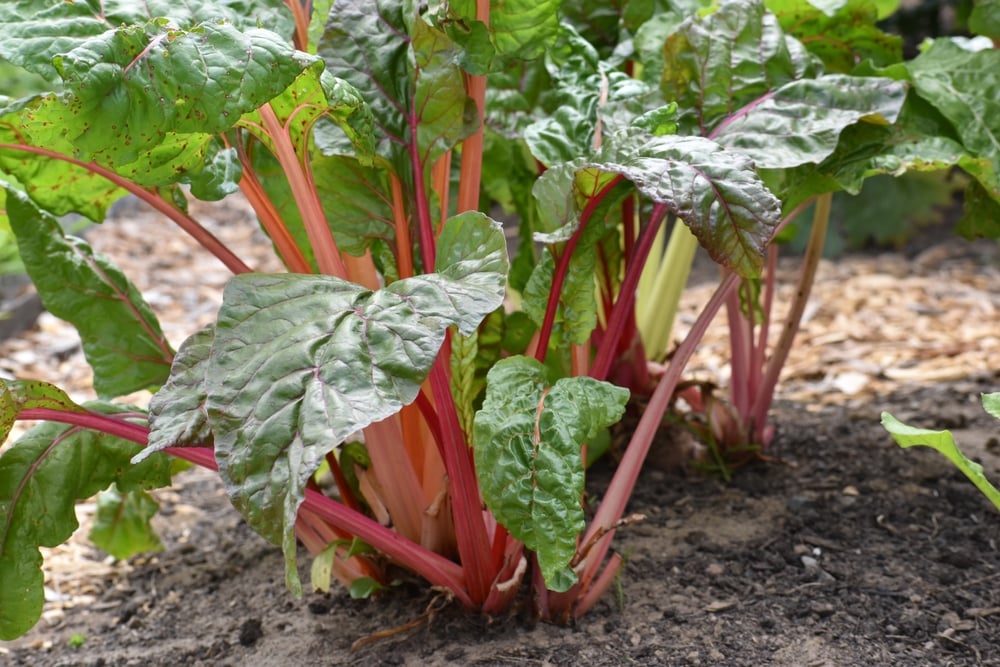
Popular Varieties: Red, Green, Speckled
Why Grow Rhubarb?
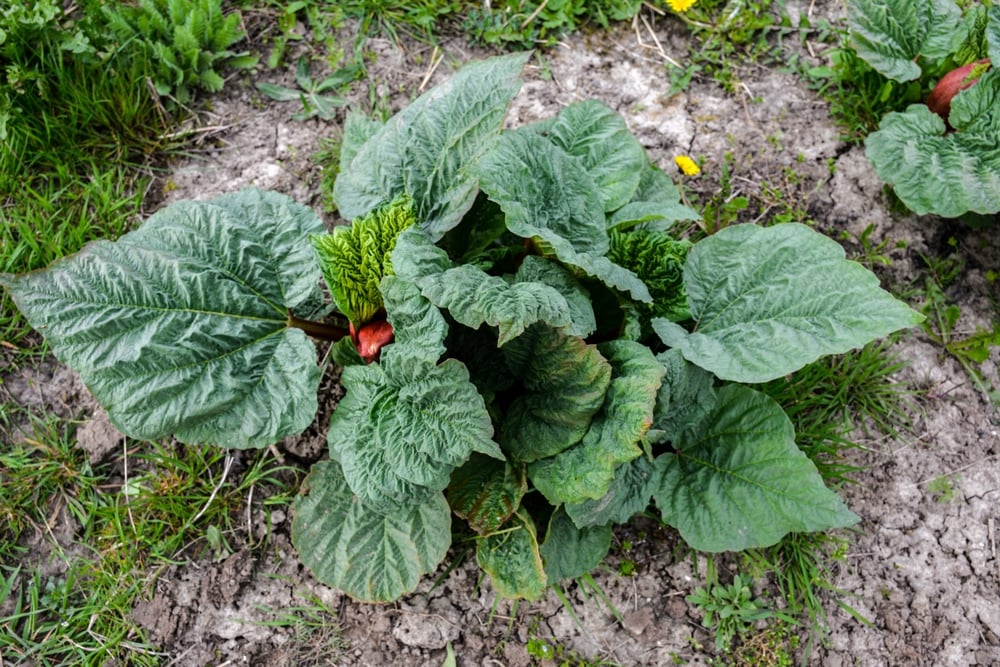
Thrives in the heat:
- As the summers get warmer rhubarb continues to get bigger and more plentiful. Look no further for a low-maintenance vegetable.
Perfect for Small Space:
- Rhubarbs are perfect for small spaces, meaning this makes them great for pots. Just plant them in a small pot and enjoy them in your urban and suburban properties.
THESE Could Harm Your Rhubarb
Insects:
- Rhubarbs are one of the most insect-prone vegetables. Aphids, fruit worms, and even stinkbugs love eating them. If you wait too long to harvest expect all of these insects to become a problem.
Diseases:
- Rhubarbs are also one of the most disease-prone vegetables, especially heirloom variants. Expect blight, fungus, and buckeye rot to affect your plant in the later summer months (even if you properly care for them).
Additional Resources
Did you know Rhubarb is one of the few vegetables that you can make a delicious pie with?
#7. Spinach
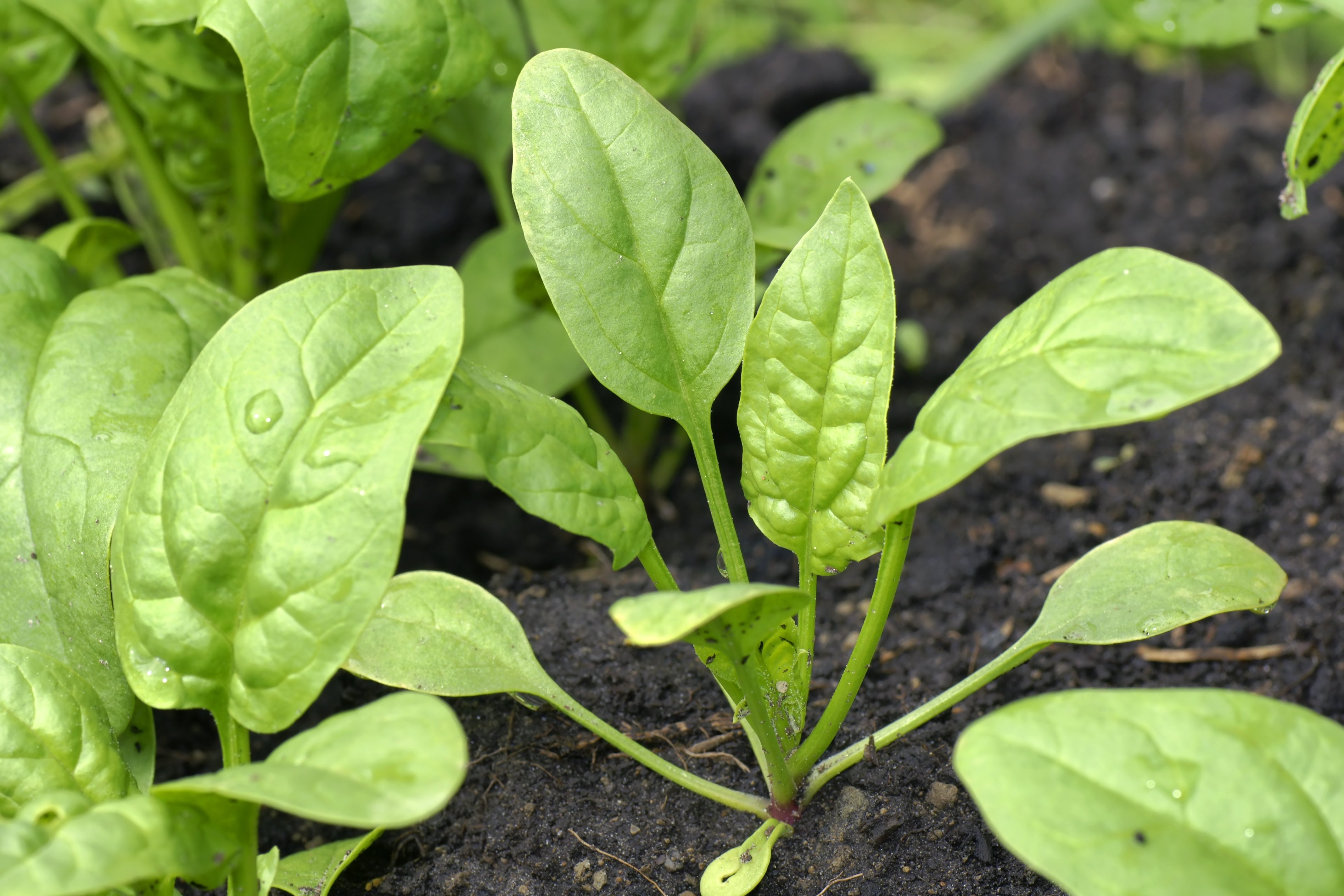
Popular Varieties: Smooth, Savoy
Why Grow Spinach?
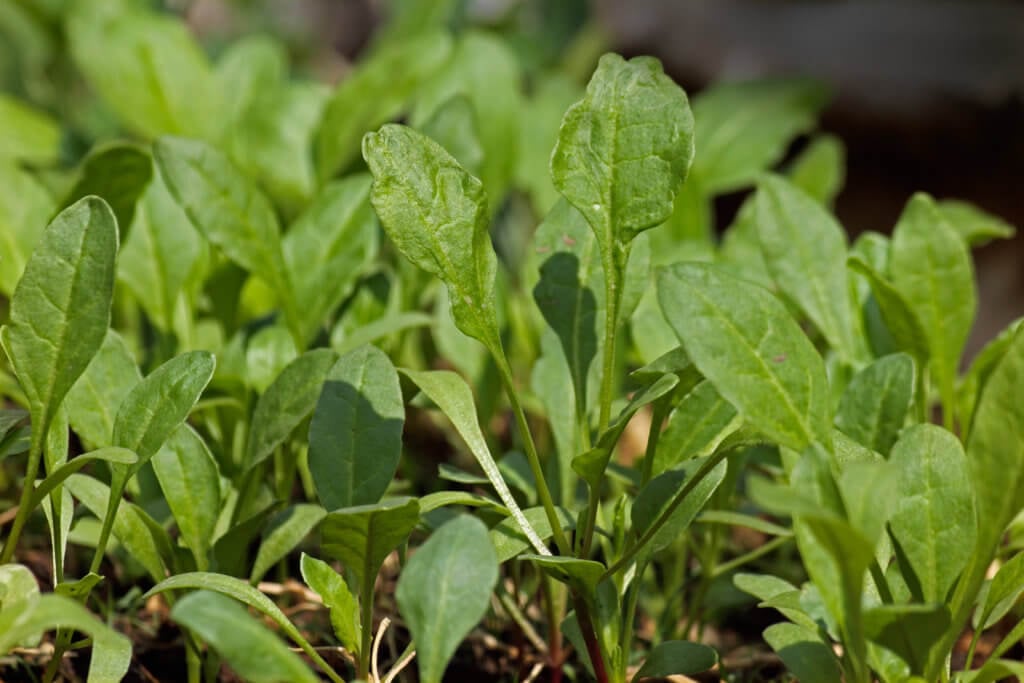
Thrives in the heat:
- As the summer gets warmer, spinach continues to get bigger, more plentiful, and and because tastier. Look no further for a low-maintenance and healthier vegetable than spinach.
Great Gardening Pots:
- If you have poor soil, not enough room in your garden, or other yard issues then you can grow spinach in gardening pots. The best part is that spinach thrives in pots. With a little bit of water and some shade and this perennial vegetable will thrive.
Quick Growing:
- Spinach is another type of perennial vegetable that can quickly grow. The best part of this vegetable is that you can start it from seed and within 45-60 days be able to harvest it.
THESE Could Harm Your Spinach
Heat:
- Spinach is another type of perennial vegetable that does not do well with heat or droughts. When it is exposed to too much heat you can expect a sour taste and even stunted growth.
Pests:
- Like other leafy greens on this list, pests like rabbits, deer, and chipmunks love eating this perennial vegetable. Make sure it is fenced in, kept close to the house, or is grown in a pot to help prevent pest damage.
Additional Resources
Learn How to Grow Spinach HERE
#8. Artichokes
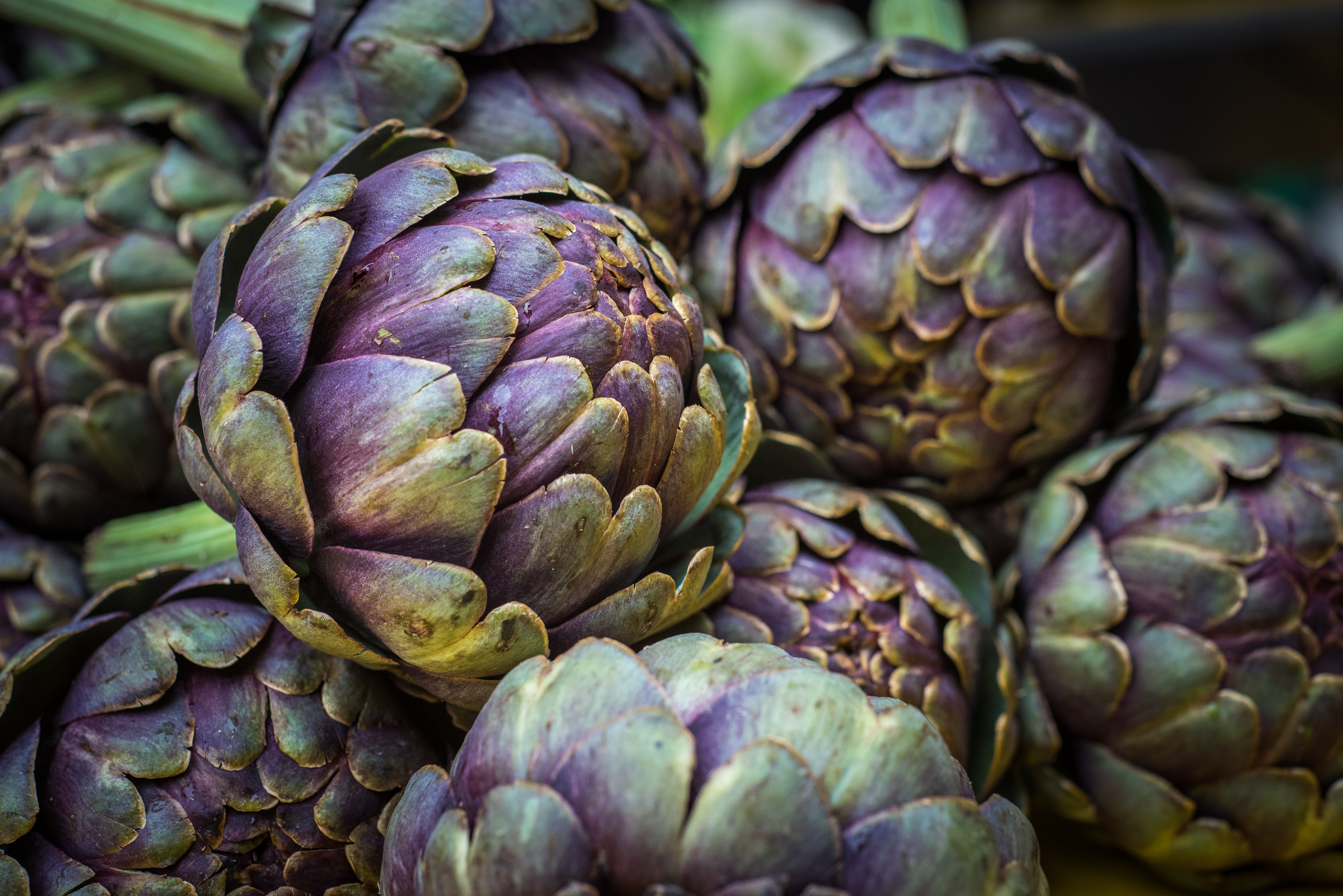
Popular Varieties: Big Heart, Imperial Star, Jerusalem
Why Grow Artichokes?
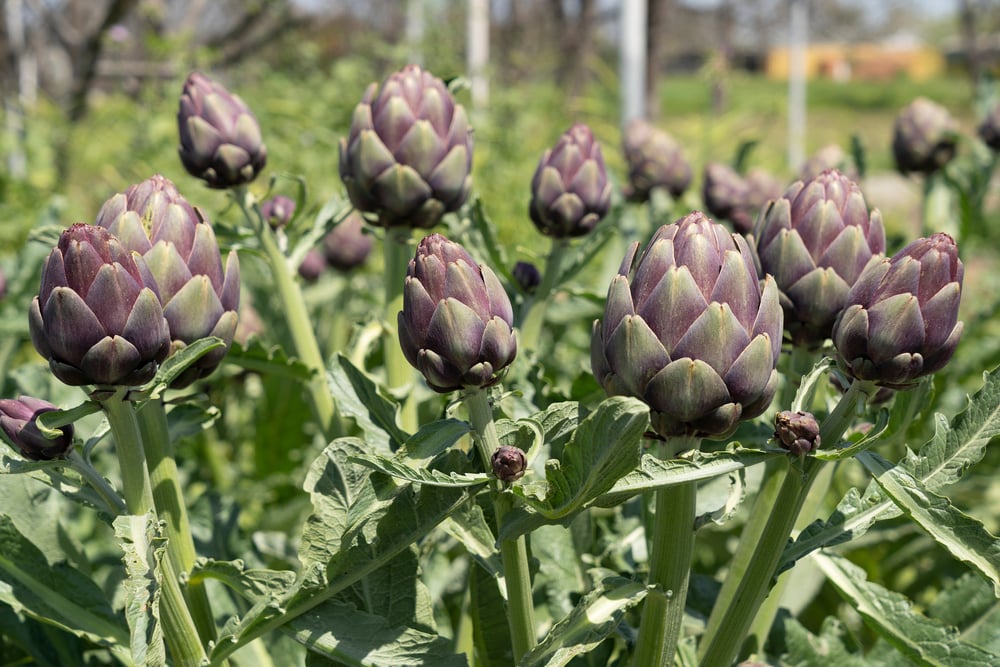
Loves Heat:
- These low-maintenance vegetables love the heat. The hotter the summer the better they do. And the longer summer goes on the more artichokes you will have.
Vertical Gardening:
- Artichokes are one of the vegetables you may not think of when it comes to vertical gardening, but they do just as great as others. This makes it perfect for small spaces and even in pots.
THESE Could Harm Your Artichoke Plants
Diseases:
- Artichokes can be prone to diseases in late summer. Expect blight, fungus, and rot to affect your plant later in the season near the time you will harvest your artichokes.
Additional Resources
Did you know that growing artichokes is one of the most popular perennial vegetables in the world?
#9. Squash
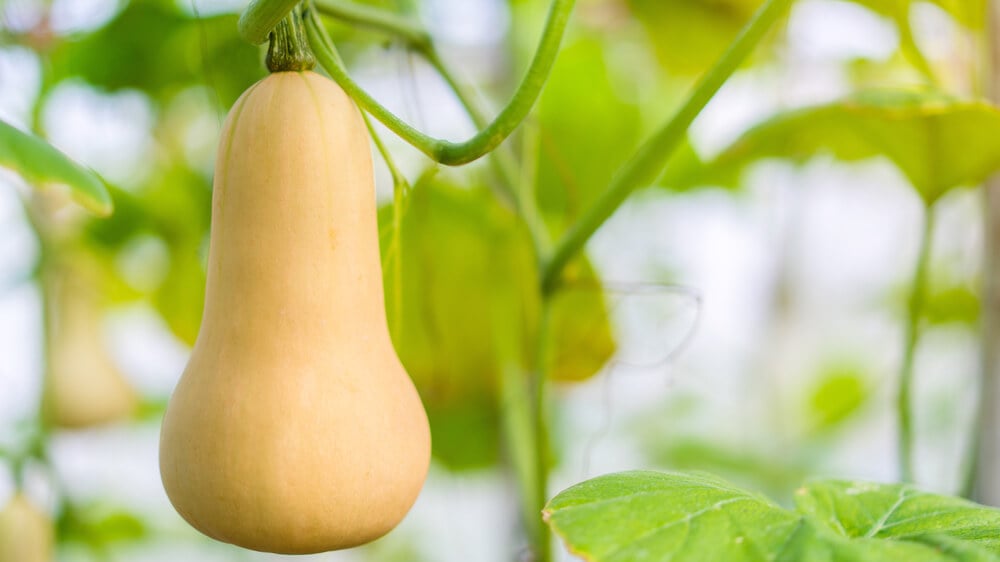
Popular Varieties: Pumpkins, Spaghetti Squash, Zucchini
Why Grow Squash?
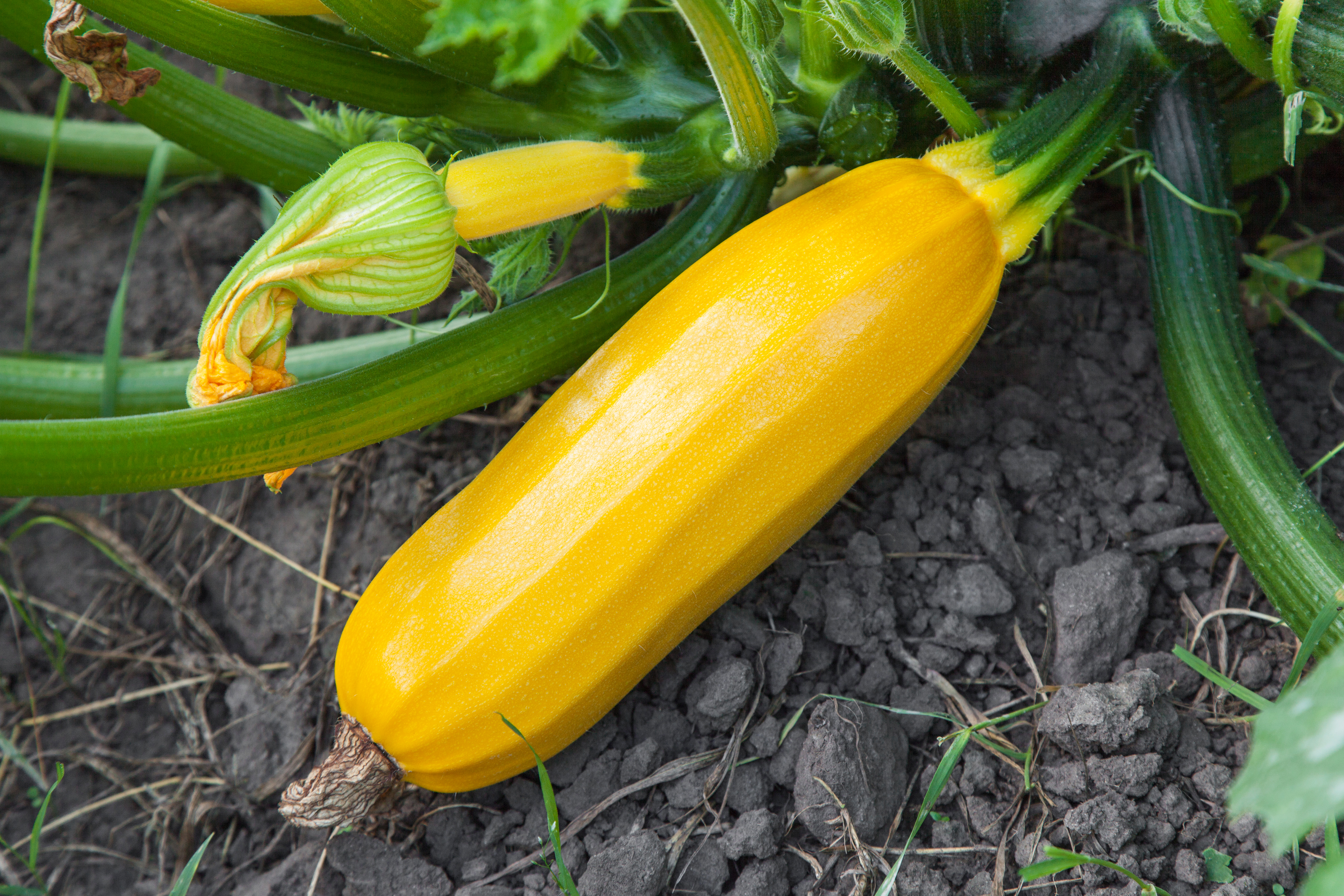
Thrives in Droughts:
- Unlike other vegetables, Squash does not require a lot of water to grow, flower, and bloom into a crop that can be harvested more than once. This is great for the unusually dry summers.
Great for Vertical Gardening:
- If you want a vegetable that grows up a pole then no look further than squash. Squash can spread horizontally very well, but also does well growing vertically.
THESE Could Harm Your Squash
Pests:
- Squash is another type of vegetable that does not do well with pests. Deer, Rabbits and other animals can eat flowers, leaves, and even stems of plants.
Additional Resources
Learn How to Grow Squash HERE
#10. Horseradish
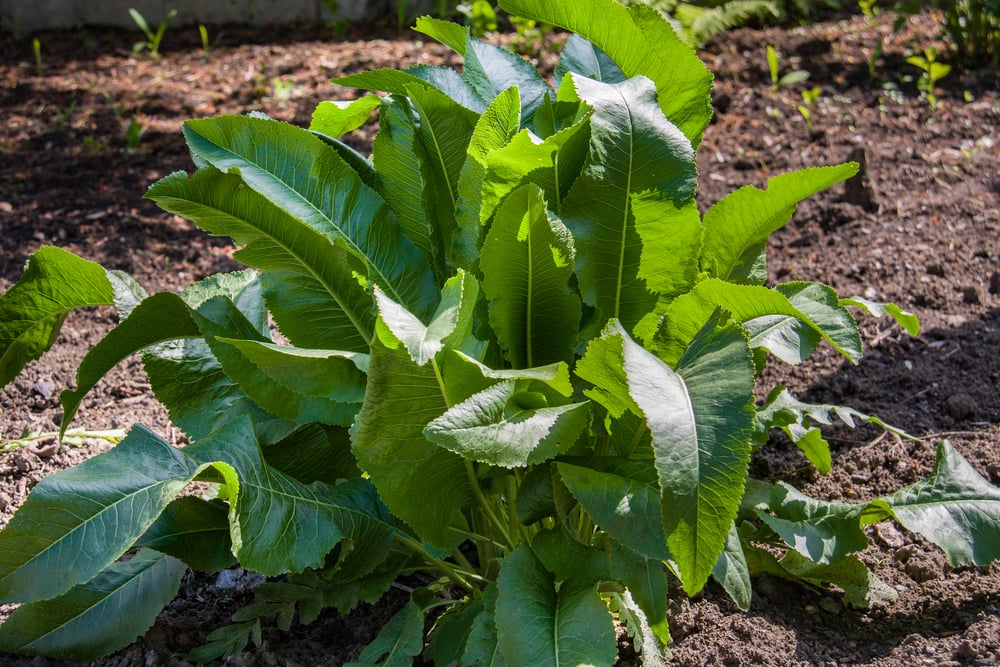
Popular Varieties: Common, Bohmian
Why Grow Horseradish?
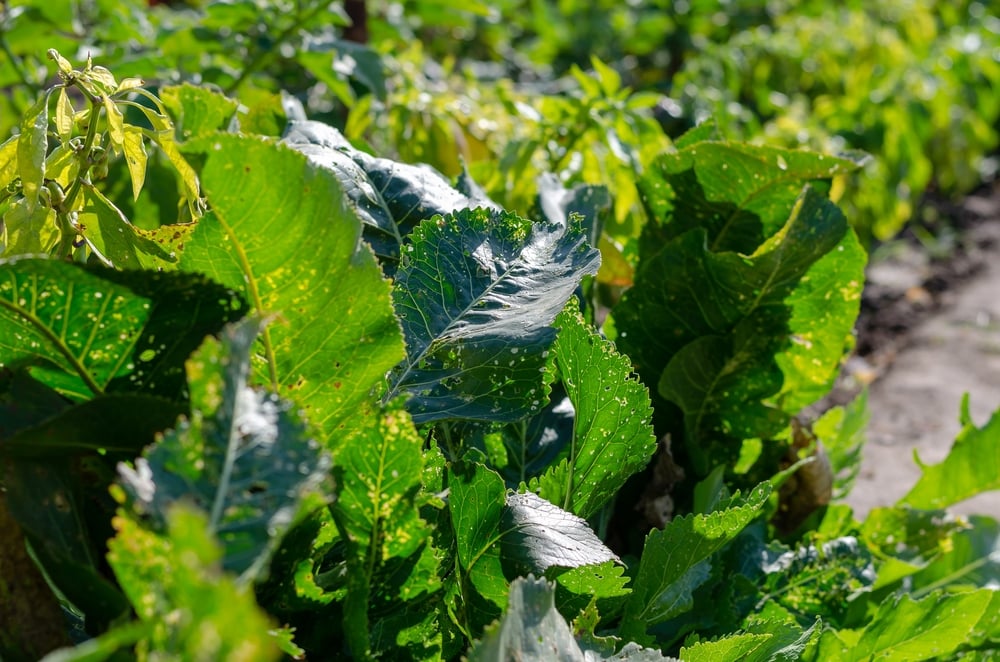
Loves Heat:
- Out of all the perennial vegetables on this list, horseradish will thrive the most with heat. This is because they naturally have been grown in warmer weather climates. And best of all is that you need to water or care for them very little to have success.
Perfect for Pots:
- Horseradish can only grow in pots. If you want a vegetable that can easily be moved from indoors to outdoors and kept indoors all year then look no further.
THESE Could Harm Your Horseradish
Cold:
Horseradish is the most sensitive perennial vegetable on this list to cold weather. If temperatures drop below 50 degrees Fahrenheit then your plant will become stunted and will stop growing. If temperatures drop below freezing your horseradish may die.
Additional Resources
Horseradish is one of the least common perennial vegetables that gardeners grow, but it is one of the easiest vegetables to grow for beginner gardeners.
Common Growing Factors of Perennial Vegetables
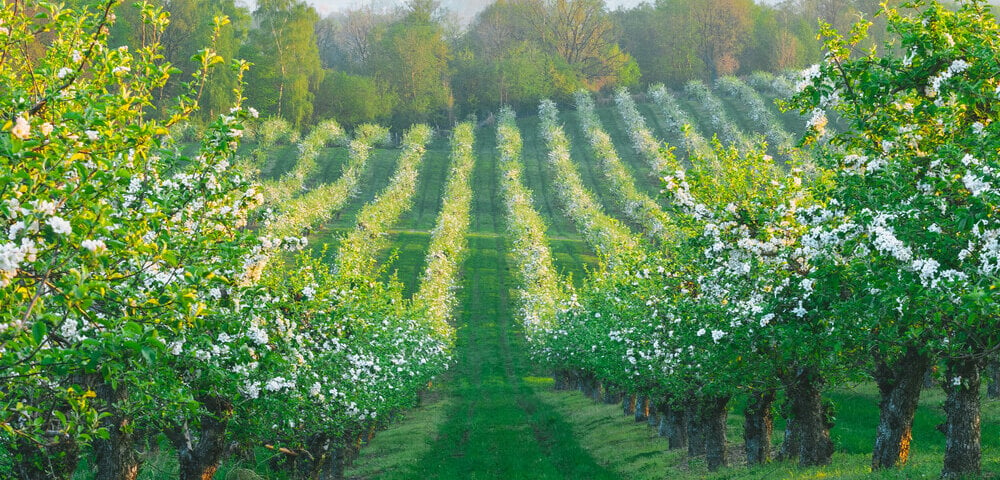
As a reminder, the below factors are common for the Best Perennial Vegetables:
- Thrives in Heat & Drought
- Thrives in Cold
- Can Grow Anywhere in your yard
- Hardy against Pests & Insects
- Require little maintenance
- Bear heavy harvest